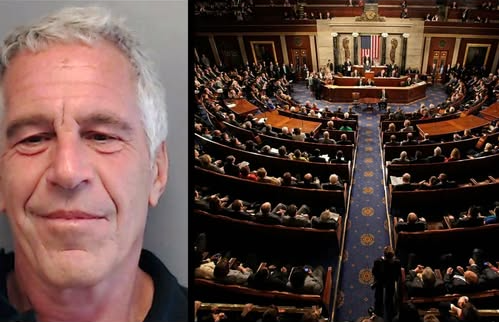A major constitutional and ethical firestorm has erupted on Capitol Hill, engulfing Rep. Jamie Raskin (D-MD), the influential ranking Democrat on the House Judiciary Committee, following his widely publicized release of a batch of private prison correspondence from convicted human trafficker Ghislaine Maxwell. The fallout has been immediate and severe, resulting in the termination of multiple federal prison employees and drawing sharp condemnation from Maxwell’s legal team, who accuse the congressman of a “gross abuse of power.”
The controversy revolves around the fact that the emails were not obtained through standard legal discovery or subpoena, but were reportedly accessed without authorization and passed from inside Federal Prison Camp Bryan in Texas directly to Raskin’s congressional office. This unauthorized disclosure violated federal confidentiality standards governing inmate communications.
Leah Saffian, Maxwell’s attorney, did not hold back in her criticism of Raskin, a seasoned lawyer and former law professor. “The congressman is a ranking member of the House Judiciary Committee, an attorney and law professor,” Saffian said on Friday. “He must be aware that his conduct undermines the entire legal process. His actions should warrant professional disciplinary measures.” She confirmed that the Federal Bureau of Prisons (BOP) had already terminated multiple employees implicated in the unauthorized access and subsequent leak, highlighting the seriousness of the breach.
Saffian argued that the employees’ decision to share the messages—and Raskin’s publication of them—constituted a clear “violation of constitutional protections, including the First, Sixth, and Fourteenth Amendments afforded to all prisoners.” She framed the incident as a systemic failure to protect her client’s fundamental rights.
The leaked emails painted a strikingly different picture of Maxwell’s current incarceration than the public perception. They revealed an unusual sense of relief and optimism regarding her accommodations at Bryan, suggesting a far more stable environment compared to the harsh conditions she faced at her previous Florida prison after her conviction.
“The food is far better, the place is clean, the staff responsive and polite,” Maxwell wrote in one message, portraying an environment of relative safety and order. “I have not seen a single fight, drug deal, passed-out person, or naked inmate running around. I am much happier here and, most importantly, safe.” In another note, she mocked her former surroundings, writing sarcastically: “The kitchen looks clean too—no possums falling from the ceiling to fry on ovens and mingle with the food being served.”
Saffian described Raskin’s disclosure as “yet another example of Ms. Maxwell’s constitutional and human rights being disregarded.” She referenced prior findings by the Justice Department’s inspector general documenting deplorable conditions at the Tallahassee facility, where the BOP had effectively “failed her once.” She argued that Raskin’s actions had compounded that failure by exploiting Maxwell’s private communications for political gain.
Raskin appeared to use the leaked emails to suggest that Maxwell might be preparing a clemency request from the Trump administration. In a letter to President Trump, he claimed a “whistleblower” had informed him that Maxwell was drafting a commutation application—an assertion that could politically benefit Raskin by linking a high-profile convicted trafficker to the President.
Saffian strongly denied this claim. “Ms. Maxwell has not requested a commutation or submitted a pardon application to the second Trump administration,” she stated. She revealed that Maxwell intends to file a petition in Manhattan federal court seeking to overturn her 2021 conviction, citing newly discovered evidence that “would have had a material impact” on the trial’s outcome. Maxwell, now 63, is serving a 20-year sentence for aiding Jeffrey Epstein in the grooming and trafficking of underage girls.
The political backlash on Capitol Hill was swift, particularly among Republicans. A senior GOP aide on the Judiciary Committee criticized Raskin’s conduct, arguing that releasing private inmate communications “demonstrates a reckless disregard for due process and confidentiality standards that apply universally.”
The aide added a pointed observation: “If the roles were reversed—if a Republican had released private inmate correspondence to harm a Democrat’s narrative—Raskin would be demanding an ethics investigation.” This framing positions Raskin’s actions as a dangerous precedent for weaponizing congressional oversight for partisan purposes. Saffian agreed, warning that the situation highlights a troubling double standard. “Federal officials are sworn to uphold the law, not weaponize it,” she said. “By exploiting confidential communications, Mr. Raskin has compromised my client’s legal rights and set a dangerous precedent for political interference in the justice system.”
Legal experts noted that the incident raises complex constitutional questions regarding the balance between congressional oversight authority and individual privacy rights. While Congress has broad powers to investigate federal agencies and misconduct, the release of specific inmate communications without court authorization or compelling public interest could expose Raskin or his staff to censure or civil litigation. “This is a gray area touching on due process,” said one former federal prosecutor. “Even if Raskin’s intent was to expose issues within the BOP, the method may have crossed the line.”
As the controversy continues, Saffian confirmed that Maxwell’s legal team is preparing a formal, multi-pronged complaint. They plan to submit a grievance to the Office of Congressional Ethics (OCE) and are seriously considering civil action against those responsible for the leak. “This won’t end here,” Saffian stated. “Members of Congress are not above the Constitution.” She emphasized that the fight is not just about Maxwell, but about safeguarding due process rights that apply equally to every individual under the law.
